Angelina Jolie transforms into Maria Callas in Maria, an intimate biopic that is witty and heartbreaking as the story unfolds like an opera on screen.
Maria Review
Pablo Larraín has become known for crafting dramas that paint an elegant portrait of their fascinating subjects. First, 2016's Jackie which was set during the week after JFK's assassination. In it, Larraín showcased a woman determined to lead a country through this tragedy and thereby became a woman synonymous with courage. In 2021, Spencer followed Diana, who decided to save herself from a lifetime of misery by leaving her marriage and forever changing the structure of the monarchy. These women were triumphant over their circumstances, despite there being an innate darkness that followed them.
In his latest, which may feel like the capstone to a trilogy, the heroine featured wasn't a side character in her own life until matters forced her to step out as a one woman show. Maria Callas was a force all her own, a star on stage and off of it. She was incredibly gifted yet tortured by her past all culminating in her final moments spent trying to reclaim her fading gift– her voice. Maria transports us to Callas' home in Paris, opening with her death before rewinding a week. It's 1977 and the world-renowned opera singer, Maria Callas is living out her last moments on the earthly stage. History tells a story of a woman who once was larger-than-life, before reducing her to her vices, mental issues, and proclaiming her to be a recluse. Larraín however, sees Callas as a human being. A lover, a friend, and a sister. One gifted in so many ways who despite her bravado was plagued by insecurities and trauma. His goal was to paint a complete picture of Callas and thanks to a powerful performance by another incredible woman, Angelina Jolie, he achieves it.
Although there are flashbacks sprinkled in to add depth and context to key moments in her past, “Maria” primarily takes place during the final week of Callas' life. Maria (Jolie) lives alone, in a lavish Paris apartment that makes most homes look like hovels. Her constant and only companions are her butler Ferruccio (Pierfrancesco Favino) and her household maid Bruna (Alba Rohrwacher). She is only 53 but, for reasons revealed later on, she has not sung in front of an audience in over four years. Maria is frail, barely eating and surviving mainly on cigarettes, wine, and Mandrake. Notoriously fickle and headstrong, she decides now is the time to stage a comeback and get her voice back in every sense. She's determined to prove her naysayers wrong. Whether she is doing this for her legacy or her pride it is never clear although both are explored, leaving us to decide on the whys.
“The world took liberties with me,” Maria recounts early on. She isn't wrong yet this film touches on all of that while also remaining empathetic towards its subject, even when she herself is contradictory. Reuniting with Larraín is “Jackie” screenwriter Steven Knight, who doesn't judge her but also never shies away from Callas' known quirks and eccentricities. Here is someone complaining about the world while surrounded by every extravagance that existed in that era. From the outside she has everything she could ever want but it's when we look deeper that we see the burden she carries. There is a lot of loss and heartache here, stemming from a childhood where she was forced to sing (and do physical favors for) German soldiers in order to earn money for her mother. Nothing is depicted in a way that degrades or downplays her experiences, nor is it played for shock value. Larraín along with cinematographer Edward Lachman, instead craft an intimate biopic that, in echoing her surreal state of mind in those final days, unfolds on the screen like one of Maria's grand opera performances.
Maria's demeanor caused as many to love her as despise her. Those who disliked her called her callous and a diva, when in reality they were actually angry that she dared to talk back and stand up for herself. (A massive eye roll as I can practically hear the people scoffing how dare a woman do such things?) To bring this kind of woman to life would take an actress of equal fame and prowess. Angelina Jolie is perfectly cast here. She moves through the scenes with her head held high and her razor-sharp tongue ready to retort and add a quip at a moment's notice. Yet she is also masterful at allowing the quieter moments, the turmoil, and the pain Maria carried to show through. As Jolie disappears into the role of Maria, she shows us that Maria Callas was simply another costume the real Maria wore, a role she acted out, all the while hiding away her more vulnerable parts from the world. If The Academy doesn't take note of this incredible performance by Jolie, I will be convinced they never actually watched “Maria.”
Much of the story is told in a dreamlike state, leading you to question what is happening in real life and what is a figment of Maria's imagination. Operatic musical numbers are interspersed to punctuate a memory or reveal Maria's state of mind. Her music and the music of the world around her are how she interprets life. It's how she functions, how she moves within the world. Maria is not a reliable narrator, that much is certain, but as she tells her butler, it's none of our business what is real. She's telling a story and we would do best to sit back and listen. Whether it is a jarring swell of her opera performances or a “vision” of Maria's present, this stage approach to her life allows for a lot of levity. There is surprisingly a lot of wit and fun to be had in a film leading back to the death of a talented star. Sometimes it's in the barbs traded by Rohrwacher and Favino, others it's Jolie herself giving a curt nod or glare in the direction of someone who displeases her.
Verdict
Ultimately, Maria is an intimate biopic that sees Angelina Jolie deliver a powerful performance. It’s witty, heartbreaking, and filmed as if we were watching one of Maria’s operas unfold. Larraín has once again given his audience a window into the life of an iconic figure. He dares us to see this person not as a celebrity to feel possessive over but as a unique human being, with a beating heart full of passion, creativity, and flaws. I'll admit I didn't know anything about Maria Callas prior to this, but seeing this dynamic, take-no-prisoners woman come alive on screen through Jolie, made me curious to learn more. And that, to me, is what marks a successful film in this genre.
Maria will release in select theaters November 27, 2024, followed by its streaming premiere on Netflix December 11, 2024. It is rated R for some language including a sexual reference with a runtime of 2 hours and 4 minutes.
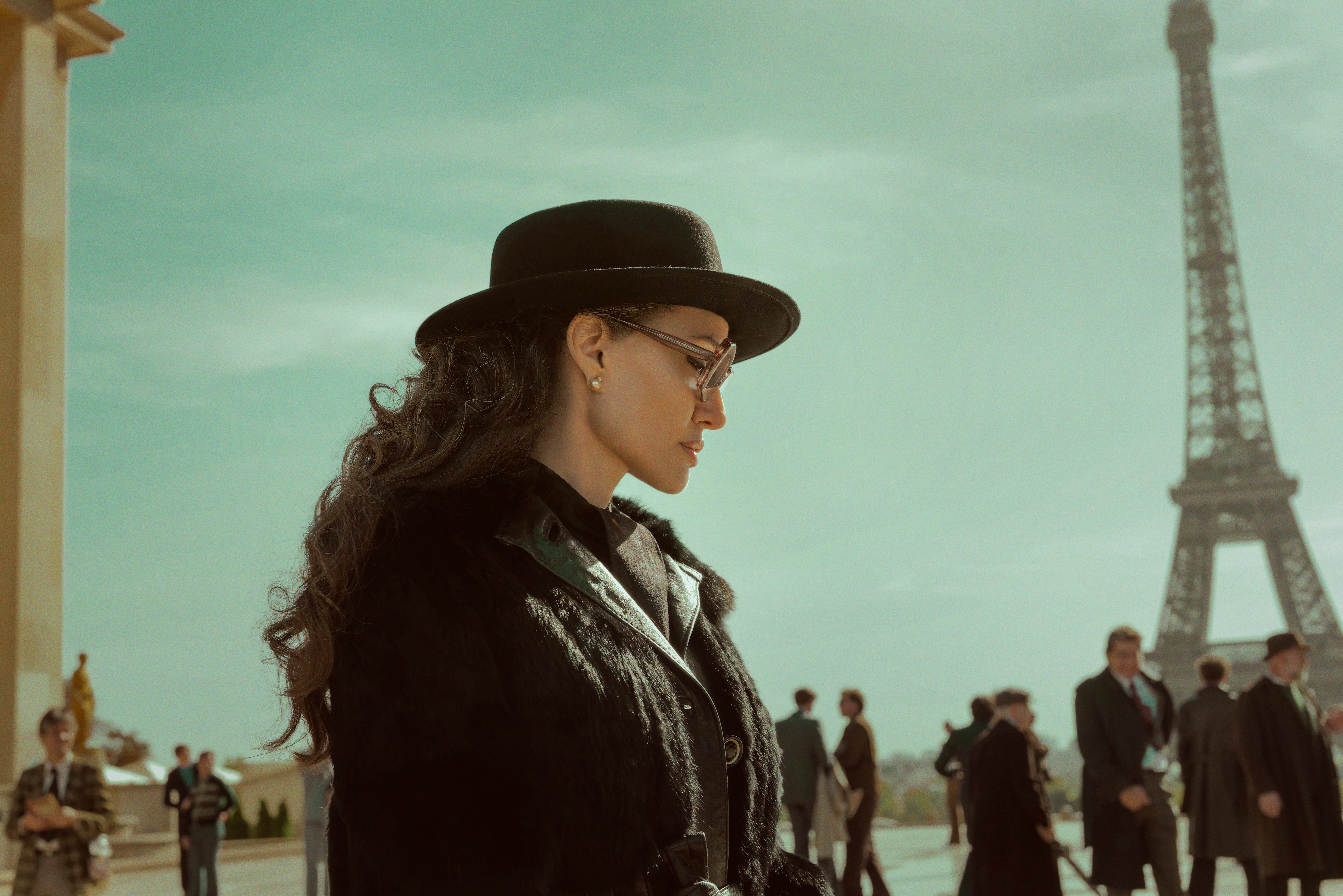
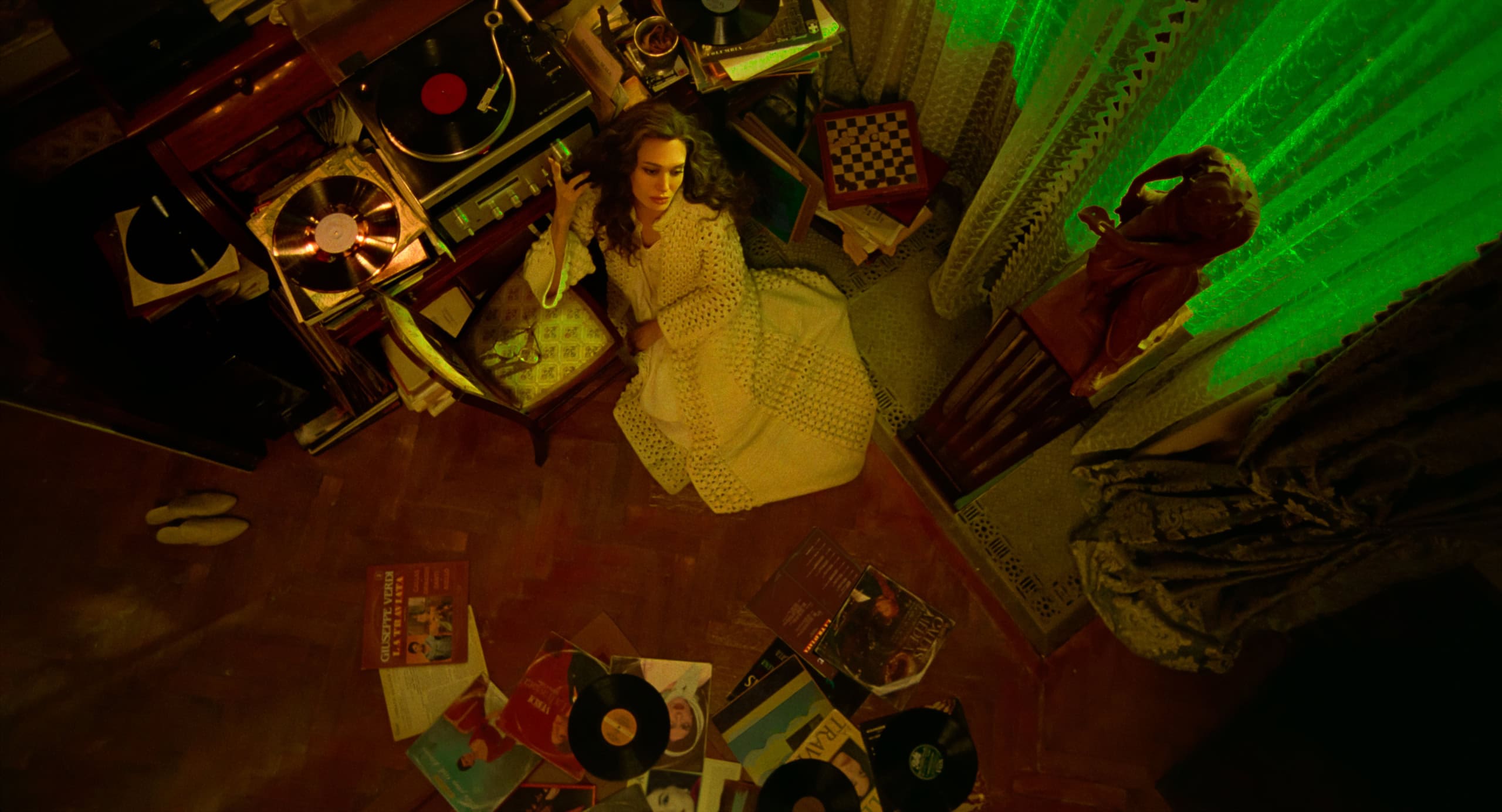
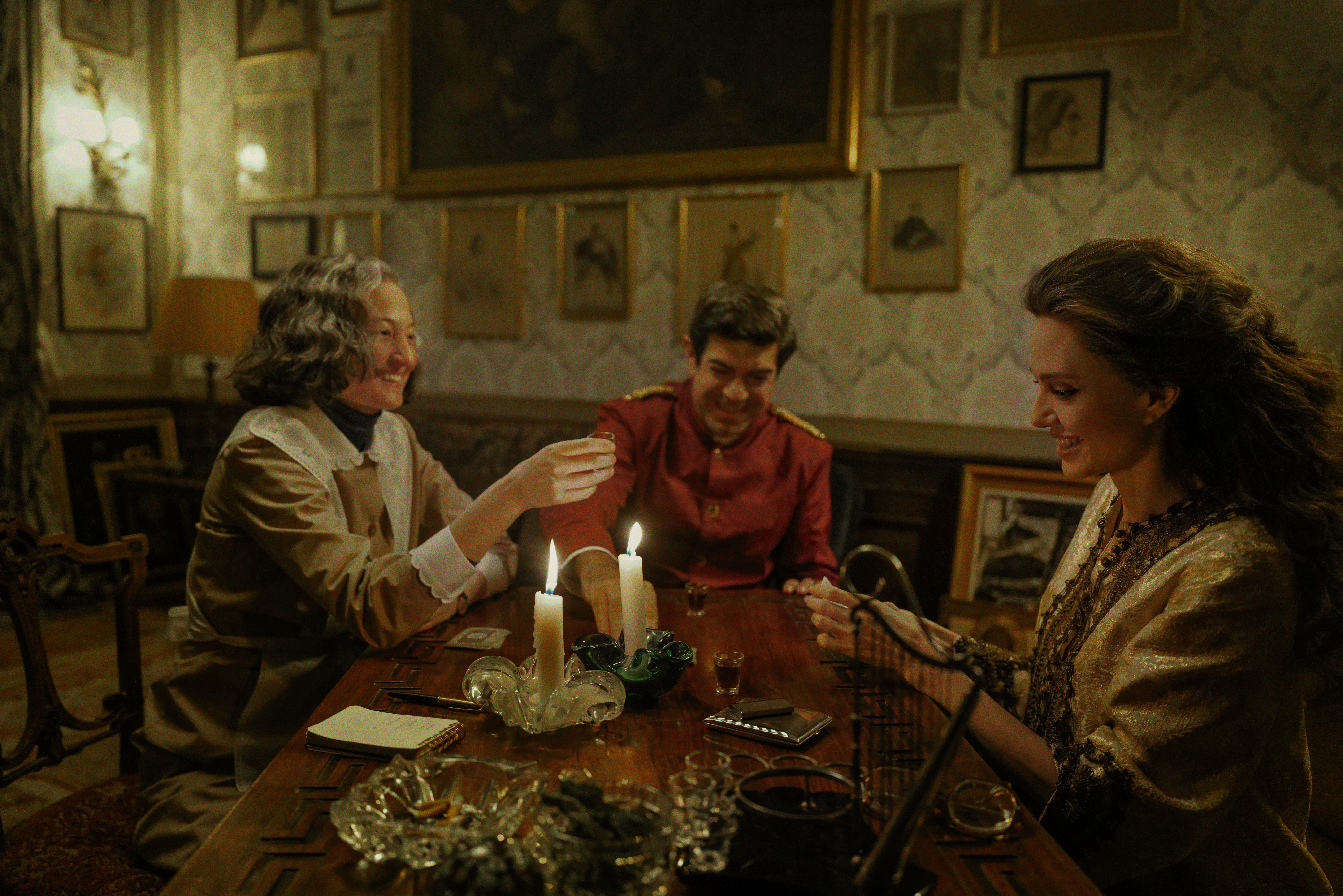


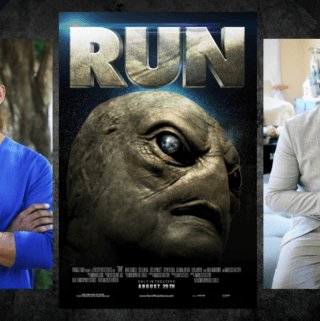


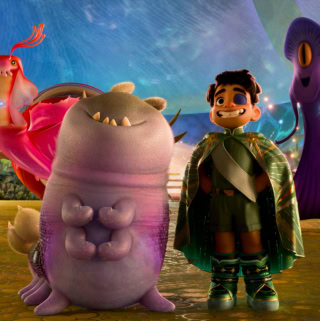
Leave a Reply